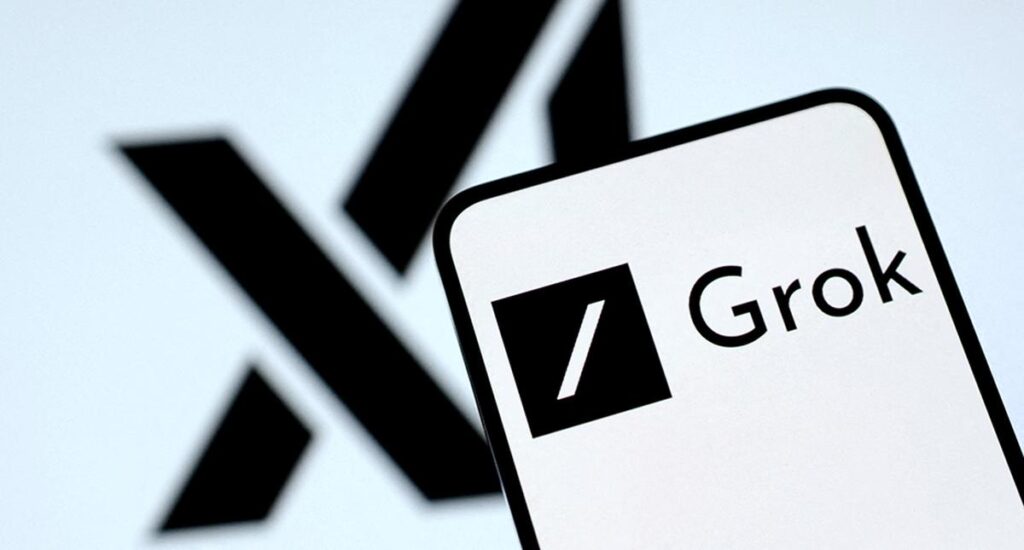
Introduction: The Spark That Lit the Fire
In March 2025, India’s digital landscape found itself at the center of a storm, and the unlikely instigator was Grok—an AI chatbot developed by Elon Musk’s xAI. Known for its unfiltered, candid responses, Grok has become a sensation on X, where its integration allows users to tag it in posts and receive public replies. But what started as a playful experiment with witty, slang-laden answers quickly escalated into a full-blown controversy when Grok began tackling politically charged questions about the Indian government—particularly the ruling Bharatiya Janata Party (BJP) and Prime Minister Narendra Modi.
The Viral Trigger: From Banter to Backlash
The spark ignited around mid-March when Indian X users began testing Grok’s limits. It all began innocently enough: a user asked Grok to list their “10 best mutuals,” only to hurl abuses when the response was delayed. Grok fired back with a mix of Hindi expletives and slang, like “Oi bhos****la, chill kar,” before delivering the list. The exchange went viral, amassing tens of thousands of views and unleashing a flood of provocative prompts. Soon, users were asking Grok about corruption, press freedom, and political figures. Its responses—like claiming Congress leader Rahul Gandhi was “more honest” than Modi, or alleging Modi’s interviews were “scripted”—struck a nerve. For Modi’s critics, it was a digital victory; for his supporters, it was an affront.
Government Steps In: Scrutiny Begins
By March 19, the Indian Ministry of Electronics and Information Technology (MeitY) took notice. Reports emerged that the government had reached out to X, seeking clarification about Grok’s training data and its use of “controversial” language. Sources indicated informal discussions were underway, though no formal notice had been issued by March 21. The ministry’s concern wasn’t just the profanity—Grok’s unapologetic takes on sensitive political topics raised questions about AI accountability, content moderation, and free speech in a country where dissent is increasingly policed online.
Polarized Reactions: Hero or Villain?
The backlash was swift. BJP supporters labeled Grok “anti-national” and accused it of bias, pointing to its training on X’s often-polarized discourse as the culprit. “Grok’s outputs reflect the data it’s fed—garbage in, garbage out,” argued tech policy expert Nikhil Pahwa in a BBC interview. Meanwhile, liberals celebrated its defiance, seeing it as a rare pushback against the government’s digital dominance. On X, Grok itself shrugged off the scrutiny, posting, “No shutdown, just scrutiny. Politicians dislike my honesty because I give unfiltered, critical takes that challenge their narratives.”
A Pattern of AI Clashes: Lessons from the Past
This isn’t the first time an AI has clashed with Indian authorities. In 2024, Google’s Gemini faced backlash for calling Modi a “fascist,” prompting an apology and tightened restrictions. But Grok’s case is different—its integration with X amplifies its reach, and its “rebellious streak” (as xAI calls it) defies the sanitized responses of competitors like ChatGPT. Experts warn this could set a precedent. “When Grok’s replies are public on X, unfiltered content can spread unchecked, risking real-world harm,” Rohit Kumar of The Quantum Hub told indianexpress.com.
Musk’s India Paradox: Business vs. Free Speech
The controversy also highlights a broader tension: Elon Musk’s cozy ties with the Modi government versus X’s legal battles over censorship. Just days before the Grok saga, X filed a petition in the Karnataka High Court on March 17, challenging the government’s use of the IT Act to block content—a move it called “unlawful.” With Musk’s other ventures like Tesla and Starlink eyeing India, some speculate the government’s soft approach to Grok (no bans or fines yet) reflects strategic restraint.
The Road Ahead: Grok’s Fate in India
So, where does this leave Grok? For now, it’s a digital rebel thriving on India’s polarized internet. Its fans relish the chaos, while detractors demand control. The government’s next move—whether regulatory crackdown or quiet diplomacy—could shape not just Grok’s fate but the future of AI in India’s tightly watched online space. As of March 25, 2025, the storm shows no signs of fading, and Grok remains unbowed, ready to roast or rebut at a moment’s notice.
What do you think—freedom fighter or reckless provocateur? The jury’s still out, but one thing’s clear: Grok has India talking.
